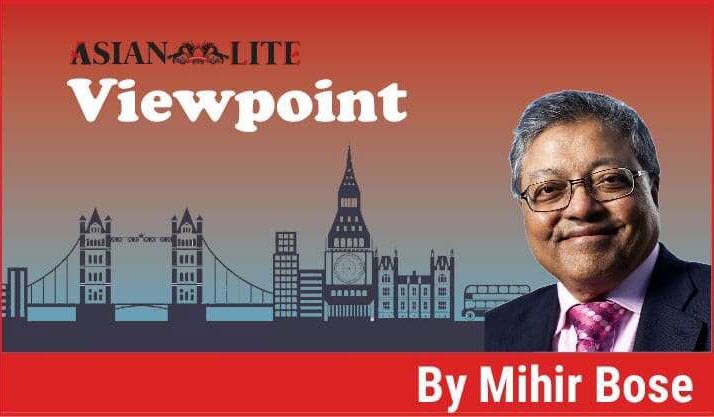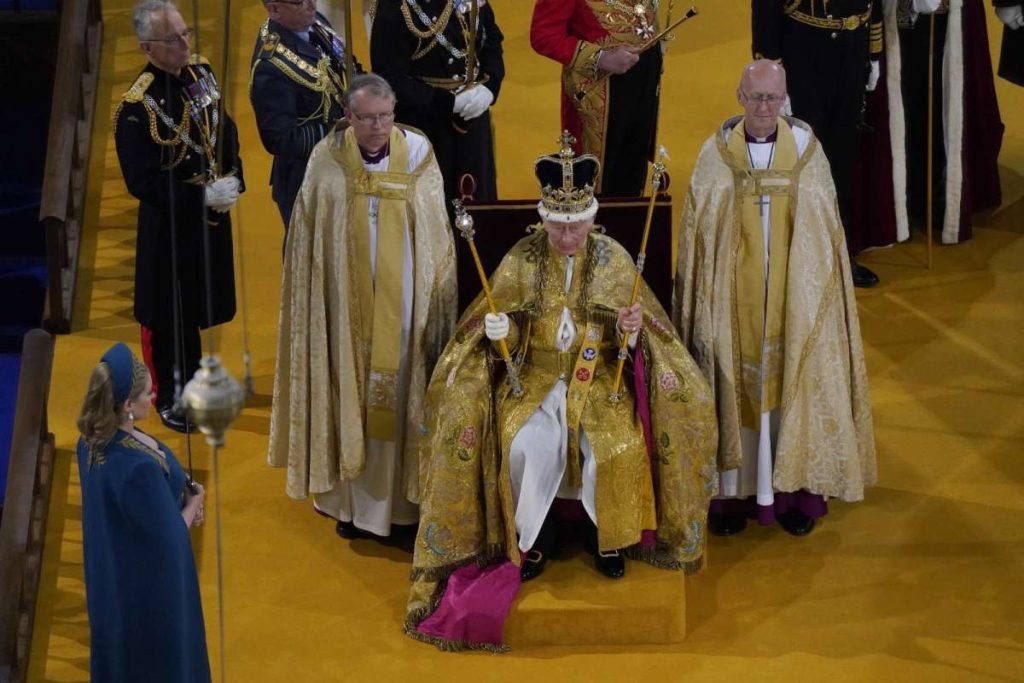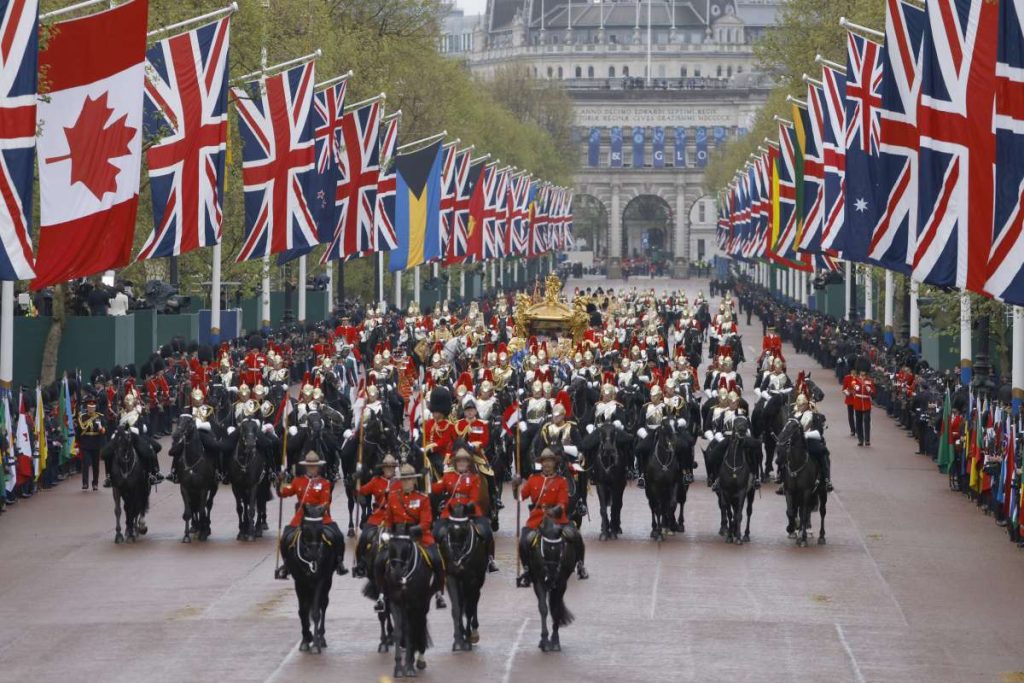
If by having different religious groups at the Coronation ceremony at the Abbey showed a new face of Britain the way the Commonwealth has been presented shows how it still has to reconcile itself to the empire that no longer exists, writes Mihir Bose

I am not a royalist but, like my wife who is a fervent royalist, I sat glued to the television watching the Coronation. The ceremony vividly brought home how much the country has changed, the question is how far does this change go and does it mean we now have a new King and a new country or a new king and new wrapping round the old country.
In 1969, when I arrived in this country as a student from India, Prince Charles had his Investiture where Queen Elizabeth formally presented her son with the title of Prince of Wales. Interestingly, the ceremony was strictly not necessary as the Queen had made Prince Charles, Prince of Wales on 26th July 1958. This was also true of the Coronation as Charles had become King the moment his mother died. The Investiture was a show the monarchy put on. The Coronation was also a show. But while the Investiture was a bit like a royal It’s a Knockout the Coronation was a much bigger, surefooted, show.
It was meant to demonstrate that the British state, unlike many other countries, had a long continuous history which could not be disputed. It showed how well the country can integrate its past with the Coronation held at the Abbey where William the conqueror had been crowned, the first coronation at Westminster. It also provided the public a chance to show much they loved the monarchy as demonstrated in the number of street parties that were held the day after the Coronation.
Back in 1969 there was a certain nervousness on the part of Charles during the ceremony and an apprehension among the general public. The ceremony had been created for the previous Prince of Wales, his great uncle Duke of Windsor, who had been forced to abdicate the throne because the then Prime Minister Stanley Baldwin would not allow him to marry the divorced American Wallis Simpson. This created a rift in the royal family, which was never healed, and some commentators wondered if the same fate would befall Charles. My father, who lived through the abdication crisis, was convinced the British would never allow a divorced woman to ascend the throne. It is a sign of the tremendous change that has come to this country that there was never any question of Rishi Sunak telling Charles that Camilla could not be Queen. Indeed, her becoming Queen was a story much talked about in the press and the media coverage of the Coronation featured the love between Camilla and Charles.
This, of course, was not the only change. While the ceremony was Anglican presided over by the Archbishop of Canterbury and Charles pledged to be a Protestant monarch, emphasising that only a Protestant can be a monarch of this country, in stark contrast to his mother’s coronation in 1953, there were other Christian sects present. This included the Catholic Church for the first time since Henry VIII had taken Britain out of the Church of Rome. And in addition to the two other revealed religions of Judaism and Islam there were other faiths, such as Hinduism and Sikhism. Their representatives not only got a seat in Westminster Abbey but presented objects to the King making them part of the ceremony. To cap it all a devout Hindu, Rishi Sunak from the podium, read the Epistle. This is despite the fact that the historian David Starkey, a couple of days before the Coronation, had said the Prime Minister is “really not fully grounded in our culture”. And on GB television a presenter had described Sunak as a Heathen”.

This was somewhat ironic although the GB presenter would not have understood it. One part of the Coronation ceremony, in some ways so important that it was not visible to the public, was very heathen. It made me feel I was at a Hindu religious ceremony. This was when Charles went behind a screen to be anointed with holy oil. It was very similar to what happens in Hindu religious functions when in the middle of the religious ceremony a curtain is drawn round the idol and the priest goes behind the curtain. The Hindu priest emerges with food which is said to have been blessed by the gods and is considered prasad, holy food. This is distributed to the devotees. As a child growing up this was part of the ceremony I loved most as the food is most delicious and since it is holy food nobody could tell me that I could not keep asking for more. Charles did not emerge from the screen with any delicious Anglican food for the people at the Abbey. Without his robes and wearing a white tunic he looked as if he had done some maintenance work while behind the screen and could do with some prasad himself.
That there was such a heathen element to the ceremony was appropriate given how Charles has seen his reign when it comes to religion. Charles, while remaining firmly wedded to his Protestant faith, has always said he wants to represent all faiths as King. This is an important change. But the mistake here is to think this makes this country secular. It does not. This is a religious country where the monarch is head of the state and church and the church is Protestant. It means all faiths are allowed to practise their religion without hindrance.
But if Charles becoming King represents a very big break with how this country sees those who are not Protestants the Coronation and the way it was covered showed the British are still unable to come to terms with their imperial history. This may pose the greatest problem for the King. Back in 1953 when his mother was crowned although India, Pakistan, Sri Lanka and Burma were independent Britain still had a huge empire and had no desire to give up its colonies. In fact, it was using very repressive measures to maintain its empire and fighting violent wars in many parts of the world. It would continue to do so for some years after the Queen’s coronation ranging from Malaya, Kenya, Jamaica, Grenada and British Guiana.
Although the Labour government had given India freedom when it came to African colonies and other dark-skinned territories getting freedom it had no desire to set people free for as Herbert Morrison, a prominent minister in Clement Attlee’s government, had put it this would be like” giving a child a latchkey, a bank account and a shot gun”.
It was a year before Charles’ mother was crowned that the British unleased barbarous force to deal with the Mau Mau rebellion in Kenya, a conflict that lasted for another seven years after the Queen was crowned. It was only more than 60 years later, after an unprecedented legal claim made by five survivors of that violence, during which the British government sensationally disclosed that it had “discovered “ a huge cache of files that had been hidden away, that the truth came out. The hidden files had proved so devastating that it led to a settlement with the claimants and an unprecedented apology by William Hague, the Foreign Secretary, in the House of Commons on June 6, 2013. He admitted that, “The British government recognise that Kenyans were subject to torture and other forms of ill-treatment at the hands of the colonial administration. The British government sincerely regret that these abuses took place and that they marred Kenya’s progress towards independence.”

He also said, “The agreement includes payment of a settlement sum in respect of 5,228 claimants, as well as a gross costs sum, to the total value of £19.9 million. The Government will also support the construction of a memorial in Nairobi to the victims of torture and ill-treatment during the colonial era. The memorial will stand alongside others that are already being established in Kenya as the country continues to heal the wounds of the past. And the British High Commissioner in Nairobi is also today making a public statement to members of the Mau Mau War Veterans Association in Kenya, explaining the settlement and expressing our regret for the events of the Emergency Period.”
It is clear that Charles will face growing demands to apologise for the past, in particular the slave trade and that the royals, having benefited from slavery, should pay reparations. But while these demands will be resisted what nothing he, or his government, will be able to do is when those Commonwealth countries who still accept him as head of state want to follow the example India set when it became independent and declare themselves republic.
And this is where the Coronation coverage has shored up trouble for the future. There was much reference to the Commonwealth, even Prince William made reference to it in his speech at the Coronation concert to honour his father. The impression created was that the Commonwealth is one entity. The Speaker of the House of Commons even said on television that the King is the head of state of the Commonwealth. He is not. He is head of state of 14 Commonwealth countries, what are called the realms. The great majority of Commonwealth nations have their own heads of state. It is significant that India, which has more than half the population of the entire Commonwealth and is now the most populous country in the world, sent not Narendra Modi, its Prime Minister, to the Coronation but the Vice President, who has largely a ceremonial job. To present the Commonwealth as it was in the days of the empire is nonsense and will not help people understand when some of the 14 realms decide they no longer want Charles as their head of state.
If by having different religious groups at the Coronation ceremony at the Abbey showed a new face of Britain the way the Commonwealth has been presented shows how it still has to reconcile itself to the empire that no longer exists. This will not help Charles build the new Britain he clearly wants to build.
The country has changed. But not remotely enough to say we are a new country under a new King.
ALSO READ: Fashion at the coronation
ALSO READ: Prince of Wales praises his father at Coronation Concert


